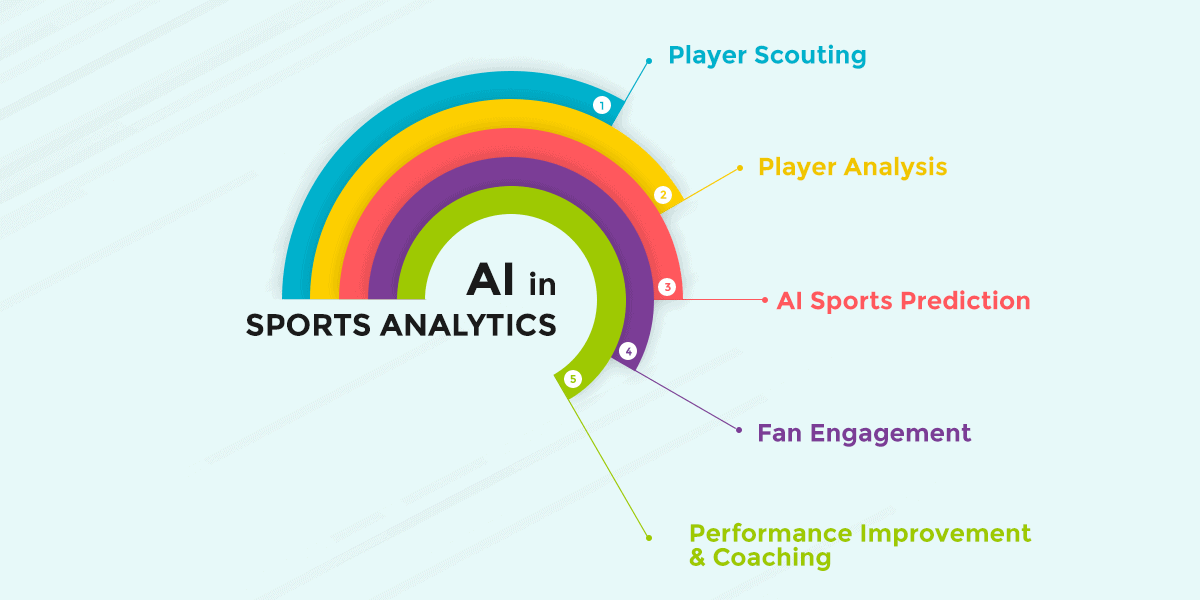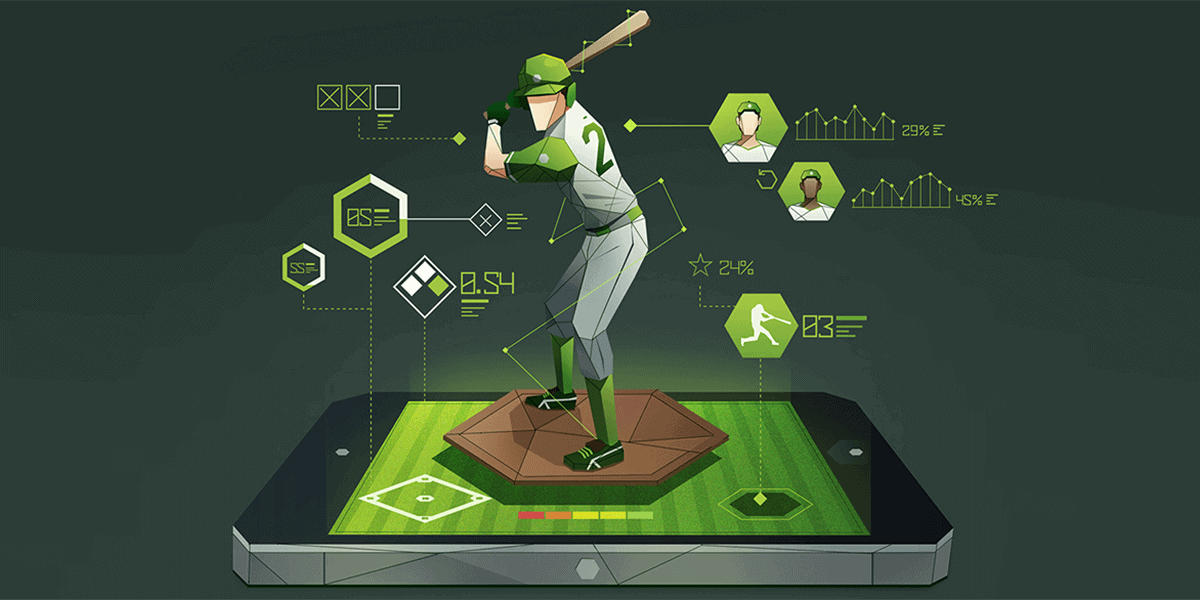Artificial Intelligence in Sports Analytics: A Game-Changer

Artificial intelligence (AI) is rapidly transforming the sports industry, providing teams with new insights and tools to improve performance. From scouting and recruitment to training and game-planning, AI is already having a major impact on the way sports are played and watched.
1. AI in Sports Analytics: A Brief History
The use of AI in sports analytics is a relatively new phenomenon, but its roots can be traced back to the early days of computer science. In the 1950s, researchers began to develop algorithms that could be used to analyze sports data. These early efforts were limited by the computing power available at the time, but they laid the foundation for the more sophisticated AI techniques that are used today.

In the 1990s, the development of new AI algorithms and the increasing availability of powerful computers led to a surge of interest in sports analytics. Teams began to use AI to track player performance, identify trends, and develop game plans. By the 2000s, AI had become an essential tool for every major sports team.
2. How AI is Used in Sports Analytics Today
Today, AI is used in sports analytics for a wide variety of tasks, including:

- Scouting and recruitment: AI can be used to identify potential recruits by analyzing their performance data and comparing them to other players. AI can also be used to create 3D models of players, which can help teams to visualize how they might fit into their system.
- Training: AI can be used to create personalized training plans for players, based on their individual strengths and weaknesses. AI can also be used to simulate games and provide players with real-time feedback.
- Game-planning: AI can be used to help teams develop game plans and strategies. AI can analyze opponent data and identify their weaknesses, which can help teams to exploit them. AI can also be used to create real-time predictions of game outcomes, which can help teams to make better decisions during the game.
- Broadcasting: AI is increasingly being used to enhance the broadcasting experience for fans. AI can be used to create 3D graphics, highlight key plays, and provide real-time analysis.
3. The Impact of AI on Sports
AI is having a major impact on the sports industry, and its influence is only likely to grow in the years to come. AI is helping teams to make better decisions, identify and develop talent, and improve their performance. As AI continues to develop, it is likely to have an even greater impact on the way sports are played and watched.

4. The Benefits of AI in Sports Analytics
There are a number of benefits to using AI in sports analytics, including:
- Improved decision-making: AI can help teams to make better decisions by providing them with insights that they would not otherwise have. For example, AI can be used to identify potential recruits who are a good fit for a team's system, or to create game plans that exploit an opponent's weaknesses.
- Increased efficiency: AI can help teams to be more efficient by automating tasks that would otherwise be time-consuming and repetitive. For example, AI can be used to track player performance, analyze game data, and create training plans.
- Improved performance: AI can help teams to improve their performance by providing them with the tools and insights they need to succeed. For example, AI can be used to create personalized training plans for players, or to simulate games and provide players with real-time feedback.

5. The Challenges of AI in Sports Analytics
There are also a number of challenges associated with using AI in sports analytics, including:
- The cost of implementing AI: AI can be a costly investment, especially for smaller teams.
- The need for specialized skills: Teams need to have the specialized skills and knowledge to use AI effectively.
- The potential for bias: AI systems can be biased, which can lead to unfair or inaccurate results.

6. The Future of AI in Sports Analytics
The future of AI in sports analytics is bright. As AI continues to develop, it is likely to have an even greater impact on the way sports are played and watched. AI is already being used to enhance the fan experience, and it is only a matter of time before it becomes an essential part of every major sports team.
7. Conclusion

AI is a powerful tool that can be used to improve the performance of sports teams. By providing teams with insights that they would not otherwise have, AI can help teams to make better decisions, identify and develop talent, and improve their performance. As AI continues to develop, it is likely to have an even greater impact on the sports industry.
Post a Comment